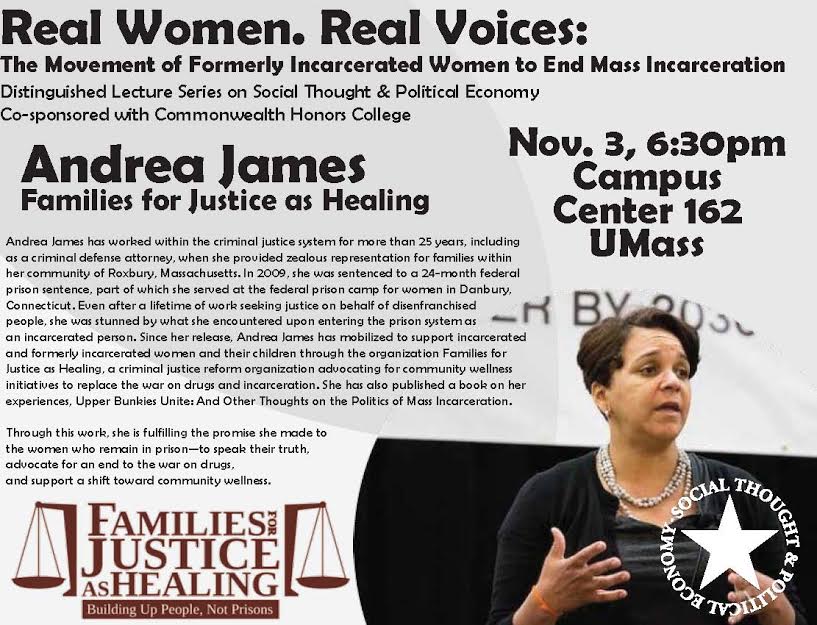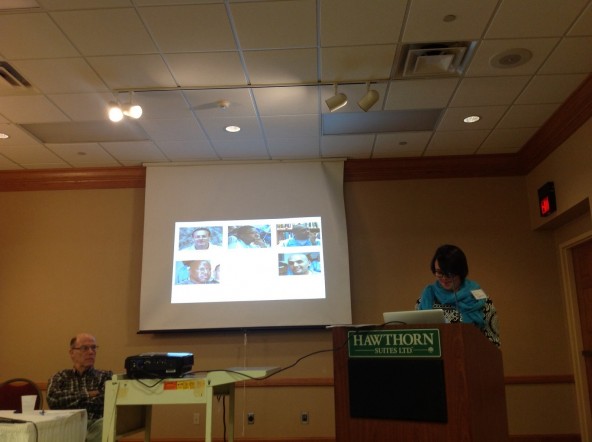Photo by Amanda Wills, www.mashable.com
Chris Tinson, a radio journalist and assistant professor of African American Studies at Hampshire College sent me a fascinating and important email about work going on in Ferguson. Here tis:
——
“A couple of weeks ago I was able to travel with a group of students from my college to Ferguson to do some solidarity work down there. We connected with a range of youth, students, other out-of-town activists, elders, and organizers. Some of the local folk were connected to the Organization for Black Struggle, the St. Louis-based group that anchored many of the events at #FergusonOctober. Many others were just young people, fed-up and in the streets. Some were calling themselves Millennial Activists United, Tribe X, Lost/Found Voices, etc. They were poets, writers, students who’ve paused their education to struggle, workers who lost their jobs as a result of protests. Some of whom had been jailed for days during the August protests and are back in the streets, refusing to go home. As one young brother told me, ‘We can’t go home, because we ain’t got no homes to go to; this is our home.’ They are mad as hell, and righteously so.”
“Even as we all continue to watch intently for whatever shenanigans the county prosecutor is cooking up, in what looks like will not be an indictment but some sort of compromise verdict/decision, it remains to be seen what the other side of these events will look like. One thing is certain, there will be a new day, based off the infectious energy of the youth, in St. Louis. As I’ve said elsewhere: ‘Ferguson is Happening to America.'”
“It was clear from being there about 4 days that there was a bit of a rift between the older and younger generations, as well as between the clergy and the streets, even as many clergy put themselves strategically on the line and were arrested with many protesters. However, the generational divide isn’t as thick as first imagined. The older and senior black and brown folk from around the area know what this is about. Though they weren’t out in the streets chanting and facing down police at 2am, it doesn’t mean that they don’t understand the anger and want to pray everyone back to normal. All throughout FergusonOctober I witnessed multigenerational families marching, going to town halls, gathering and sharing information about protesters who had been arrested, or providing hot meals to protestors still in the streets long after the temperature had cooled.”
“Although the news is no longer reporting this regularly, there are still daily protests, daily actions, daily confrontations with police, who are hellbent on ‘maintaining order.’ But the youth and many adults are saying there will be no peace until there is justice. Were this anywhere else, I am willing to bet that folks would have been back to business as usual. But not St. Louis. The infectious energy that was on display and that is ongoing in a series of rolling protests, has ripped through a sleeping giant of a community with no intention of retreating or compromising anytime soon. Watch out though: there is an effort afoot to applaud them to death, congratulate them on the job well-done attracting the world’s attention to their frustration. They know that strategy well. It’s been happening to them all their lives while not being ignored. This is a new generation of justice seekers, and though they see themselves in the long history of social distress, student activism, and CR/BP politics these are not their only points of connection to history. They are makers of history, not appendages to it.”
“Many in Ferguson are citing the daily, routine, ritualized instances of brutality, violent indifference, and structural marginalization, including economic assaults on working class poor folk through the area’s ticket and warrant system, for example. Others cite the historical depletion of black middle class possibility due to white extraction of resources as deep sources of the changes underway in STL/Ferguson. A recent study by the Economic Policy Institute (EPI) entitled “The Making of Ferguson” indicts federal housing and social policies as the underlying causes that led up to Darren Wilson’s “legal” extinguishing of Mike Brown’s life. ‘The conditions that created Ferguson cannot be addressed without remedying a century of public policies that segregated our metropolitan landscape. Remedies are unlikely if we fail to recognize these policies and how their effects have endured,’ writes EPI research associate, Richard Rothstein. The takeaway: social structures are unlikely to change without a profound understanding and appreciation for the histories of government-sponsored anti-black social policy. Instead of accepting this fact as an explanation, many media outlets started and have begun anew the ‘what was wrong with Mike Brown’ line of inquiry. Could folk be anymore wrongheaded about this? And why is there no broad-based refutation of that new (old) strategy of blaming victims of white on black state violence?
“I know I may be preaching to the choir here, but the recent attempts to re-try Mike Brown (tried by bullets fired from Darren Wilson and now tried by the machinations of the grand jury process) mirror such attempts to re-try, re-accuse Assata Shakur, and the recent double-down on the effort to silence long-held political prisoner, Mumia Abu-Jamal. Despite this Mumia is still allowing his voice and insights as instruments of justice. Pennsylvania Governor Tom Corbett (GOP-FOP friendly) is on record recently saying that prisoners are prisoners because they’ve given up their Constitutional rights. Alright, Tom, if you’re that certain, then why not kill everyone imprisoned and save your tax-payers some dough? But of course, these officials are ‘civilized, law and order’ types. They know that they can only achieve and maintain order through physical, gratuitous, and legislative violence, rights be damned. All in the name of self-referential definition of democracy. For such folk, the law is a tool of violence.
“There is a dismal picture being painted here. I had a wild nightmare recently that black people were on display at museums; as something that used to be, used to exist; encased with a nice 5×7 gold-plated description of the specimen that told of its travails in the most innocuous, sterile language imagined so as not to alienate or generate any feelings of discomfort for docents, patrons, city officials, or well-to-do liberal teachers who’d be forced to explain to their fifth grade class of ten year old that ‘we used to have black people here, and then slowly they began to mysteriously disappear.’ When I awoke, the news was still on.”
“No doubt, I continue to fight the good fight for racial justice in our day; marking the small but significant victories of a convicted white shooter, an indicted cop, a federal probe here and there. But the overhaul we work towards is actively and productively offset by forces that profit off of the marginalization and civic death of black residents. These forces don’t always profit equally or materially, though these need not be ruled out.”
“In the meantime, we struggle. The youth demonstrating critical citizenship in the streets of St. Louis and at other hot-spots around the country, yelling at the top of their hoarse lungs at the government, ‘They think we a game; they think we a joke,’ have justice tattooed on their hearts and minds. They know what it is, though they’ve been kept from it, and they know that only through the power of their voice, tears, pain, energy and creativity and most of all their willing to risk their own comforts and safety, can anything that remotely looks like justice be achieved. They might not get justice, but they’ve enlisted themselves on the side of history that fought and will continue to fight for it. Seeing their example, we can do nothing less.”




